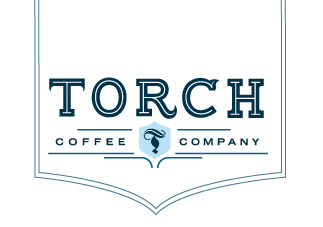SCAA Coffee Tasters Level 1 Class Descriptions
GE151 Green Coffee Grading
This class focuses on the physical evaluation of green coffees according to SCAA Grading Standards via hands-on exercises. Students will learn to use the SCAA Arabica Green Coffee Defect Handbook to discuss the cause and effect of the identified defects, as well as what necessitates testing and evaluation of green coffee.
GE153 Le Nez du Café Aroma of Coffee
This class allows students to gain familiarity with the 36 common aromas chosen for the standardized industry tool, the Le Nez du Café kit, which represent an array of scents found in coffee’s fragrance and aroma. Students use the Le Nez du Café aroma kit for coffee to self-assess their ability in recognizing and categorizing aromas found in coffee. This class is also recommended as a training class for coffee professionals interested in preparing for the Q-Grader exam.
GE154 Sensory Skills Test Preparation
This class consists of a series of tests that evaluate a taster’s ability in identifying and discerning the different taste thresholds, which is the first step towards successful cupping. Students are presented with a set of aqueous solutions, each containing varying levels of salt, sweet, and sour which they have to be able to discriminate. This class prepares students for the Q-Grader Sensory Skills test, however results from this class do not count towards the retakes of this portion of the Q-Grader exam without prior approval by the Coffee Quality Institute (CQI).
GE200 Introduction to Sensory Analysis
Sensory analysis techniques are essential for individuals working with specialty coffee, especially those involved in the field of coffee tasting or cupping, as the quality of sensory information can affect the quality of business decisions. In this class, students will be challenged to develop widely used guidelines, prepare scientific tests, and approach analyzing coffee in commonly accepted formats to understand the broader scope of sensory analysis. Individual differences and bias are touched on in this class, but those who are interested to further study may find sensory analysis covered more in depth in advanced grading and evaluation classes.
GE201 SCAA Cupping Form & Peer Calibration
This class demystifies the SCAA Cupping Form and prepares students to embrace its regular use in scoring quality coffees. The class comprises of an instructive lecture before students cup three coffees, score them, and calibrate to experienced instructors. Open discussion and active participation is encouraged as students align on the methods and concepts used to evaluate coffee. This class is recommended as a training platform for coffee professionals interested in preparing for the SCAA/CQI Q-Grader exam.
GE202 Comparative Cupping: World Regions
The primary goal of this class is to advance the skill of calibration among coffee tasters and develop the necessary skills to cup coffee objectively and consistently. Using the SCAA Cupping Protocol including the SCAA Cupping Form, students evaluate four flights of coffee. Through small group cupping, discussion, and a brief lecture, students cup and discuss coffees from the three global regions, regional variation within the same country and same processing method, as well as processing differences within the same country. This class is recommended as a training class for coffee professionals interested in preparing for the SCAA/CQI Q-Grader exam.
GE203 Comparative Cupping: Africa
This class is an advanced version of GE202, whereby the focus on coffees in this class are specialty grade African and Asian coffees.
GE204 Defect Cupping
In this class, students will evaluate two flights of coffee using the SCAA Cupping Protocols, alternating between direct, small group cuppings, brief lectures, and small group discussions. Students are required to identify coffees containing five specific defects and speculate their causes: Rioy, Fermet, woody or aged, unripe, and must or moldy. This class is also recommended as a training platform for coffee professionals interested in preparing for the SCAA/CQI Q-Grader exam.
GE205 Comparative Cupping: Central & South America
This class is an advanced version of GE202, whereby the focus on coffees in this class are specialty grade Central and South American coffees.
GE255 Organic Acids in Coffee
This class introduces students to four of the most prevalent organic acids, which are some of the most important flavor compounds found in coffee. By deepening knowledge of chemistry behind taste, coffee professionals can increase their repertoire of terms and descriptions when evaluating coffee. This skill will assist producers, mill staff, importers, roasters, and baristas focus their own quality-producing efforts by making the connection between organic acids and their role in the chain of quality.
GE303 Triangulation Cupping
Triangulation is an essential specialized skill in cupping that sharpens a cupper’s ability to differentiate coffees blindly, by developing consistent and objective palate memory. In this class, students triangulate three flights of coffee with discussion in between flights according to the SCAA and CQI protocol for triangulation, and the correct answers are revealed at the conclusion of the class. The class is also recommended as a training class for coffee professionals interested in preparing for the SCAA/CQI Q-Grader exam.
